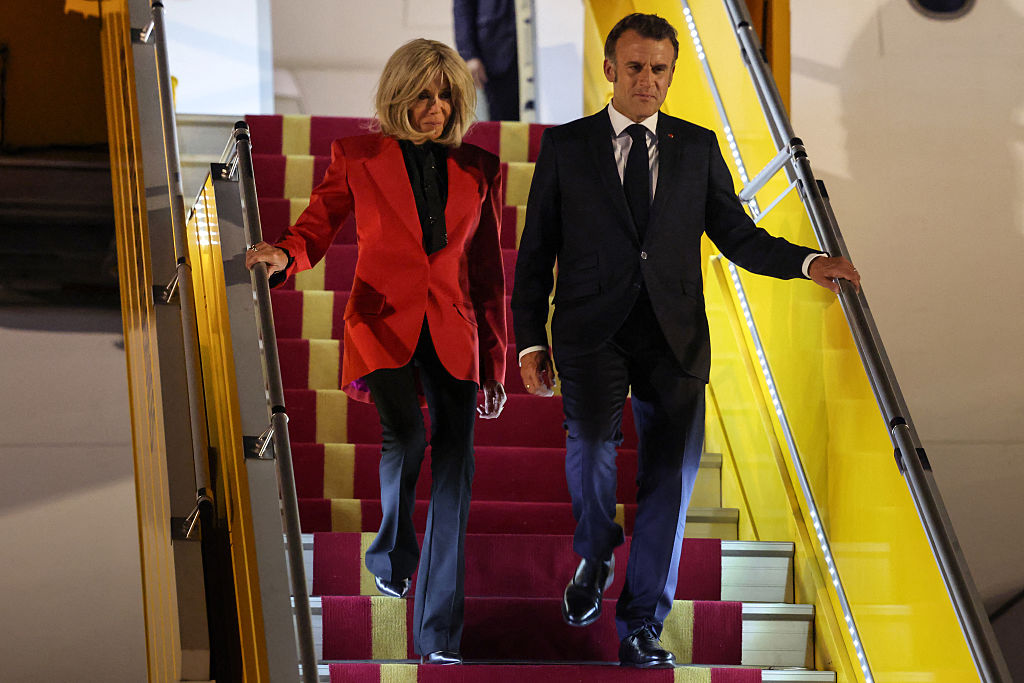One Saturday in March, I attended an anti-lockdown rally in central Paris. I was there partly out of journalistic curiosity but also out of solidarity with those Frenchmen and women who believed it was high time life returned to normal. What struck me was the similarity between the protesters and those I had walked with in 2018 in the early weeks of the yellow vest movement in Paris — overwhelmingly middle-aged blue-collar workers.
The yellow vests famously had no leader because it was a protest movement that arose not out of any strong political conviction but from what the French call ras-le-bol: despair at what was perceived as an arrogant and out-of-touch political class who seemed intent on punishing the poorest in society. Likewise, those French who from the start of the COVID crisis have questioned the wisdom of putting the economy into hibernation and depriving the young of an education have had no mainstream political party willing to champion their cause.
Surely this was a role made for Marine Le Pen, the woman who styles herself as the maverick, the outsider, the scourge of the establishment? From the beginning of the pandemic, it is the worse off who have been more skeptical of lockdown. So why didn’t she take up the cudgels? Because Le Pen is very much part of the political establishment, albeit an unpopular part.
Unfortunately for Le Pen, she has also become unpopular with her electorate, as last month’s dismal showing in the regional elections demonstrated. The people who once voted for her are drifting away because she no longer speaks for them, whether on Islamism, immigration, Frexit or COVID. It was only a few weeks ago that polls were asking whether Le Pen would become president next year; now they are asking if she will reach the second round. No, is the view of the majority.
How different it might have been had she not adopted the position of Emmanuel Macron in March 2020. Instead, on nearly every COVID policy, Le Pen has been meekly compliant. Sure, she has sniped from the sidelines when the government made mistakes — Madame Hindsight — but she never offered a coherent alternative, never displayed any empathy for those whose mental or financial wellbeing was being ravaged.
On the contrary, Le Pen was the first to demand an 8 p.m. curfew way back in March 2020, months before it was implemented by the government. ‘Marine Le Pen should have been the head of a movement of contestation about the curtailment of liberties, whether it be masks or travel restrictions,’ said a disgruntled party member last October when France went back into lockdown.
But why would the former lawyer speak up for the proletariat when she was born into wealth and privilege? Raised in the upmarket Neuilly-sur-Seine suburb of Paris, Le Pen is today the proud owner of four properties which, according to a left-wing journal, have a collective value of approximately €1,277,000 ($1.51 million). The champion of the little people? No, a bourgeoise millionaire. In contrast, the man who has his eye on succeeding Le Pen as party leader is 26-year-old Jordan Bardella. His upbringing couldn’t be more different: a working-class man born into an immigrant family from Italy and raised on a council estate in one of the more deprived suburbs of Paris.
Le Pen’s detachment from her party’s grassroots has been exposed by the COVID crisis. Why didn’t she rally to the side of restauranteurs in February when they held a day of ‘civil disobedience’ in protest at the ongoing closure of their establishments? Why the silence over the devastating impact of successive lockdowns on the nation’s children, who, according to a recent report, have seen their cognitive capacity fall by an average of 40 percent? Why hasn’t Le Pen challenged the government on its introduction of its digital COVID ‘health pass’, condemned by her erstwhile deputy in the National Front, Florian Philippot as a ‘Chinese evolution’? And on the disturbing possibility of forced vaccination for all French citizens, there has been not a murmur of dissent.
The answer is because Le Pen has consciously embarked on a new strategy in the last year, one which she reaffirmed on Sunday in her keynote speech at her party conference: to seduce that part of the electorate which is ‘more bourgeois, better educated’. In other words, capture her own class, a great many of whom have rather enjoyed the last year and a half of lockdowns.
Le Pen’s father, Jean-Marie, warned from the start that courting the middle class was doomed to fail. ‘A nice National Front will interest no one,’ declared the party’s founder. And he was right. Say what you like about the old bigot, but he’s got more political nous in his little finger than his daughter has in her body.
But then he understands and respects the working classes, having commanded them as a junior officer in Indochina and Algeria in the 1950s. Had Jean-Marie Le Pen been leader of the party during the yellow vest protests, he would surely have known how to harness their anger to his political advantage. That’s what the media expected of Marine Le Pen three years ago, but because her life has been one of entitlement and not impoverishment she doesn’t know how to connect with the poorer classes. Her response to the COVID crisis has been similarly ineffective. It will almost certainly cost her what slim chance she had of entering the Élysée next year.
Since Le Pen replaced her father as leader of the National Front a decade ago, she has been labeled a racist and fascist. There’s little evidence she is either. But a bourgeois establishment figure? Now that’s a different matter.
This article was originally published on The Spectator’s UK website.

























